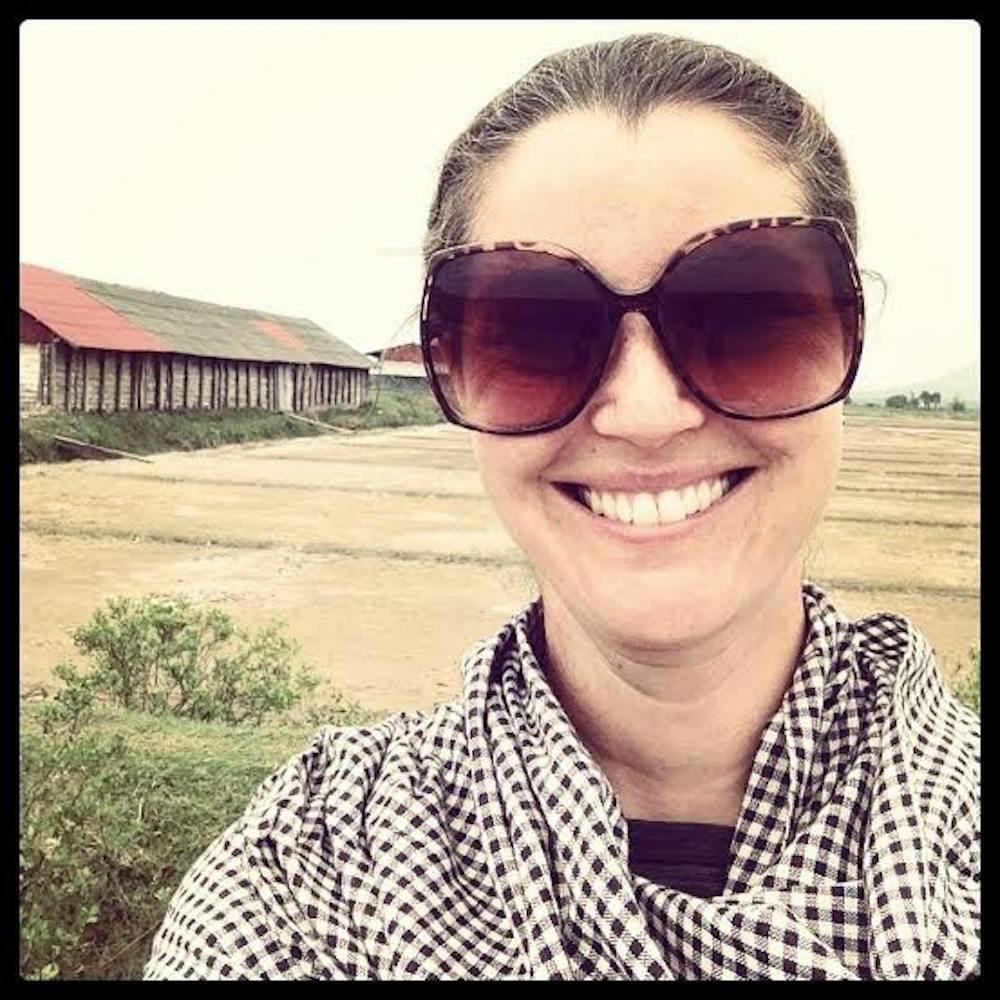Erin Moriarty Harrelson, an AU PhD candidate in anthropology, was one of five people nationally selected to receive the new Fulbright-National Geographic Digital Storytelling Fellowship July 9.
As part of the fellowship, Moriarty Harrelson will travel to Cambodia to study the emerging culture of deaf Cambodians, the possible development of a unified deaf identity and the recent creation of Cambodian Sign Language (CSL).
Her project will be the first ethnography- a scientific description of the customs of individual peoples and cultures- of deaf people in Cambodia, according to Moriarty Harrelson, who is also deaf.
The Fulbright-National Geographic Digital Storytelling Fellowship was created in 2013 as a new component of the Fulbright Program, according to the Bureau of Educational and Cultural Affairs. It provides U.S. citizens with the opportunity to travel overseas and undertake an in-depth examination of a globally significant issue and participate in digital storytelling.
Moriarty Harrelson’s project will use a variety of digital storytelling tools, including video, text, photographs, drawings and maps, according to Moriarty Harrelson.
The project will be published on nationalgeographic.com, according to AU College News.
The visual aspects of digital storytelling are particularly well-suited to tell the stories of deaf Cambodians, according to Moriarty Harrelson.
The project’s digital tools will allow deaf Cambodians to share their stories with a wider, non-academic audience, revealing contemporary values, such as perspectives on deaf people and their place in society.
“As a deaf anthropologist, I have a special appreciation of visual forms in the telling of a story,” Moriarty Harrelson said in an email.“The iconicity—the relationship of the form of a sign to its meaning—of signed languages presents a unique opportunity to use digital tools, such as photography and video, in innovative ways to create sensorial narratives and evoke the experience of being deaf.”
Through the project, Moriarty Harrelson hopes to highlight the moral and political implications of community formation, the creation of a deaf identity and the signed language standardization projects going on in Cambodia.
Moriarty Harrelson has visited Cambodia several times.
“Through my experiences in Cambodia, both as a deaf traveler and an anthropologist, I have come to realize that the notion of ‘having’ a formal language—signed or spoken—sometimes obscures human connection and similarities,” she said in an email.
“In many ways, the lack of a shared language is a barrier but in other ways, it is liberating. People become creative in how they connect with other humans across cultures, languages, and abilities,” Moriarty Harrelson explained.
When she returns, Moriarty Harrelson will complete her PhD at AU. Afterward, she plans to continue to work with deaf communities in Cambodia.
“My engagement with deaf people in Cambodia will continue as I produce reports and other materials they can use to support their goals,” Moriarty Harrelson said. “I hope to evoke the complex situation in Cambodia for non-anthropologists to help people better understand the experiences of deaf people in Cambodia.”





